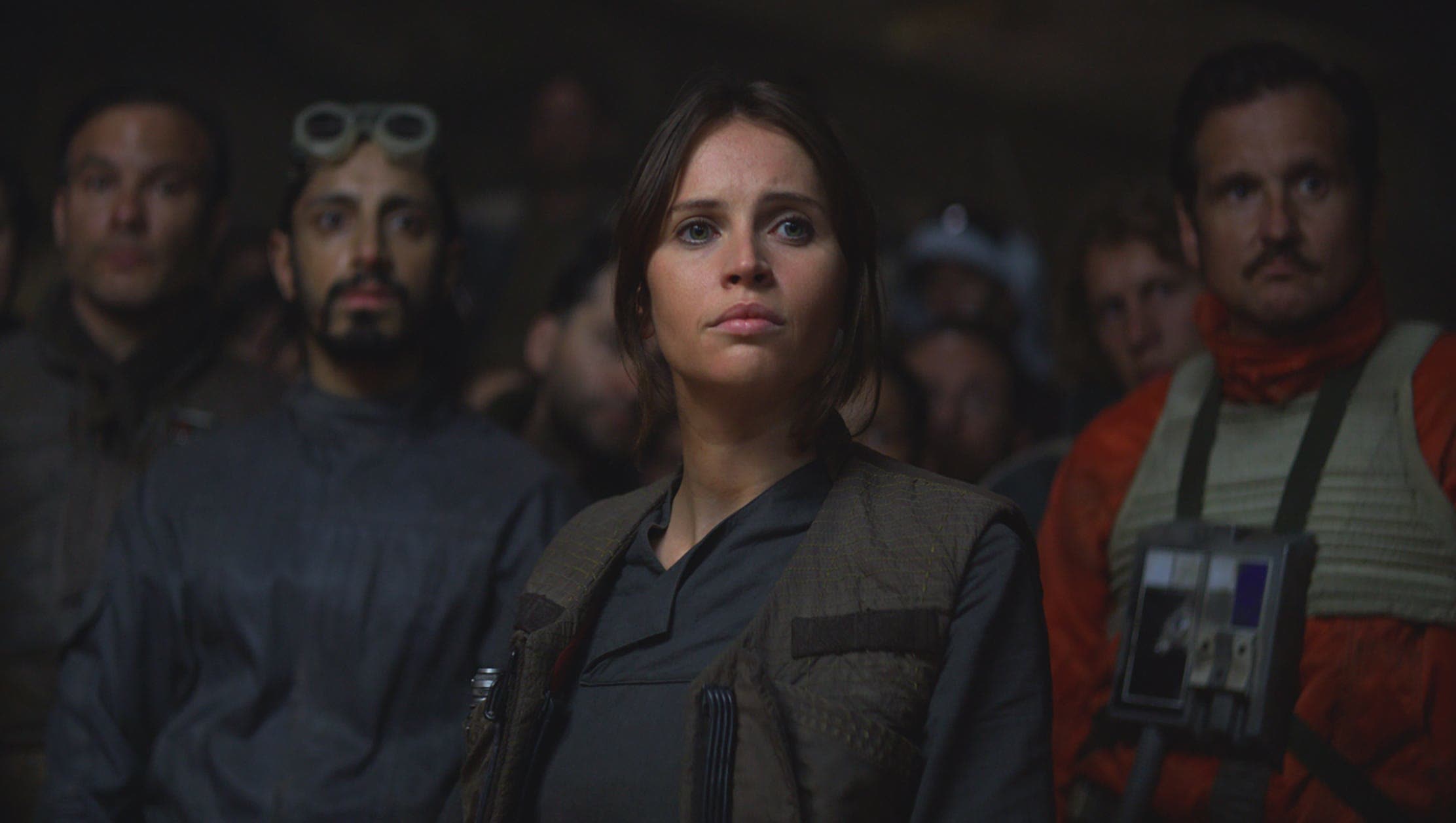In context: For many, myself included, Rogue One: A Star Wars Story was the best canonical SW movie since the original trilogy. It was so well received that the writers had framed out a sequel, but it never went into production. It was probably for the best, though.
Rogue One: A Star Wars Story debuted in theaters on December 16, 2016. It quickly broke a billion dollars at the box office, officially making it a blockbuster hit. It should be no surprise since fans and critics liked Rogue One better than the prequel trilogy released more than 10 years earlier.
Part of what made Rogue One so great is that it didn't have the stereotypical Hollywood ending. It didn't come to a happy little feel-good conclusion, at least not for the Rogue One crew, but that was a good thing. The heroes didn't get to stoop to receive medals from Princess Leia because --- spoiler alert --- they all died.
Their sacrifice tied directly into the beginning of Star Wars Episode IV: A New Hope and Leia's message to Obi-Wan Kenobi being "our only hope," as Vader and his Stormtroopers boarded her vessel. It showed the real sacrifice that the Rogue One crew made to get the Death Star plans to the Rebel Alliance.
Rogue One ended in a spectacularly explosive fashion, harkening back to Episode IV's destruction of the Death Star and coming full circle with its intended mission. Not much more needs to be said about Rogue One after that point. That aspect of the film alone --- that everyone dies --- put a sequel pretty much off the table as far as the story is concerned.
However, that didn't stop co-writers Gary Whitta and Chris Weitz from tossing the sequel ball around the brainstorming table when all was said and done. As spotted by ScreenRant, Whitta tweeted that he and Weitz had seeded an idea of having a Rogue One TV series set after the events of Return of the Jedi.
"Years ago my Rogue One co-writer Chris Weitz and I had a cool idea for a TV show about a Mossad-style Rebel team hunting down Imperial war criminals who fled and disappeared after the fall of the Empire," Whitta said. "Could have been a cool bookend to R1."
Indeed, it may have been cool --- and gritty and ultimately dark as hell. Something of a role reversal where the Rebels go on the offensive and bring a moral framing into the question: How far does the Alliance have to go to retain its freedom while the Empire is in tatters and fleeing combat? Would rebel forces not being doing the same thing the Empire was --- chasing down and killing a weaker foe?
Years ago my Rogue One co-writer Chris Weitz and I had a cool idea for a TV show about a Mossad-style Rebel team hunting down Imperial war criminals who fled and disappeared after the fall of the Empire. Could have been a cool bookend to R1. We never did anything with it though.
--- Gary Whitta (@garywhitta) November 23, 2022
However, it ultimately never made it into gestation for several reasons.
First of all, as mentioned before, the ending of R1 was pretty conclusive. Barring some deus ex machina gimmick that had the Rogue One crew survive, there was no way to write the characters back into the story at the end of Jedi. To do so would have been worse than making Greedo shoot first in Episode IV and ruining Han Solo's rep as a no-holds-barred smuggler on the wrong side of the law.
Oh, wait. Lucas already did that.
There was still the possibility of creating something similar to R1 without resurrecting the characters. However, Whitta and Weitz risked sullying the original Rogue crew's sacrifice. It would have been doomed to an early grave if not written and executed perfectly, which would have been no easy task considering the source material. Ultimately, the writers dropped the idea because Disney was already working on The Mandalorian, which debuted three years later in 2019.
Plus, Disney intended Rogue One to be a one-time story from the get-go --- part of an anthology series that included Solo: A Star Wars Story. Of course, the anthology plans also wound up on the floor of trampled ideas, with Disney deciding the streaming television series format was a better avenue for continuous revenue.
It's all good, though. Whitta and Weitz wrote one of the best Star Wars tales since The Empire Strikes Back. Why drag it out and devalue the name just for a sequel? Sometimes it's better to quit while you are at the top of your game instead of squeezing an IP for every penny it's worth.
